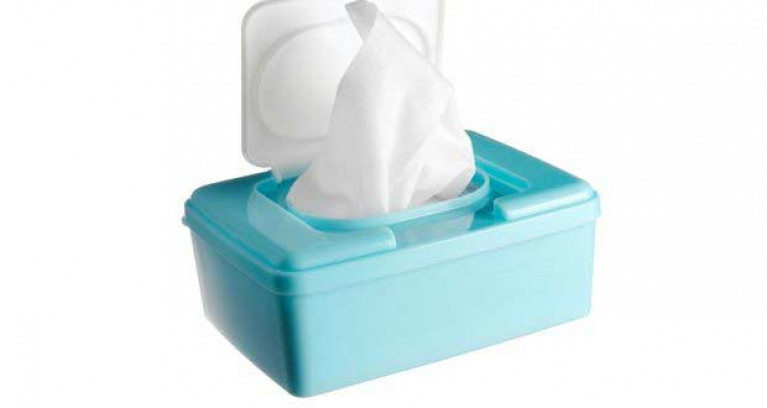Increased use of wet wipes during the Covid-19 pandemic is already exacerbating the “plastic crisis” in oceans, an NUI Galway (NUIG) team says.
Some 50 per cent of wipes labelled as “flushable” are not biodegradable and contain microplastics which are harmful to the marine environment, a new study by researchers from NUIG’s Earth and Ocean Sciences states.
Lack of regulation for hygiene and sanitary products has resulted in “a failure to identify the plastic composition of these materials”, they note.
Lead researcher Dr Liam Morrison said the study showed that sediments near to a wastewater treatment plant in Galway are “consistently strewn with white microplastic fibres”, similar to commercially available consumer sanitary products, as in wet wipes and sanitary towels.
He notes that in most studies to date white fibres are “underestimated”, because of the commonly used filtration procedure to capture microplastic fibres.
These filters are usually white, making visual identification of microscopic white fibres against a white background difficult, he said – a significant detail, given the global growth of non-woven synthetic fibre products.
While most microplastics may be removed by the wastewater treatment process, combined sewage overflows associated with periods of heavy rainfall exacerbate the situation.
The sewage waste overflows containing wipes and sanitary towels have a negative impact on public health and the environment.
In a study, published in the international journal Water Research with NUIG PhD student Ana Mendes and Maynooth University graduate Oisín Ó Briain, Dr Morrison documents how three locations were studied in Galway, Mayo and Clare.
The researchers found 6083 microplastics fibres per kilogram of sediment near Galway city’s Mutton island, where there is a sewage treatment plant.
Two rural sites had much lower levels, at 1627 fibres in Bell Harbour, Co Clare, and 316 fibres in Bellacragher, Co Mayo.
The total number of white fibres was 5536, 788, and 265 per kilogram of sediment for Mutton Island, Bell harbour and Bellacragher respectively..
“Incredibly, 91% of microplastic fibres at Mutton Island are likely derived from wet wipes and sanitary towels,” the study notes.
“Covid-19 may have brought its own challenges for the oceans including the increased use of disinfectant wipes during the pandemic which potentially may end up as microplastic fibres in the sea,” Dr Morrison said.
“It is widely known that microplastics can act as vectors for contaminants including bacteria and viruses and are potentially harmful to public health and marine life,” he said.
Heavy rainfall in late 2017 would have contributed to high volumes of washed-up “sewage-derived” debris on a frequent basis at the intertidal zone near Mutton island, he said.
“This was significant in the context of climate change, where we are likely to see increased rainfall events and flooding.”
“There is a need for increased public awareness of microplastic pollution in the environment and human behaviour should shift away from the inapt disposal of sanitary products down the toilet and instead divert to alternative land-based waste management,” he said.
Funding for the study was provided by the Marine Institute.
Separately, in March, improper disposal of wet wipes could cause the coronavirus to spread via Ireland’s recreational waters, it was claimed, as Afloat reported here.
































































